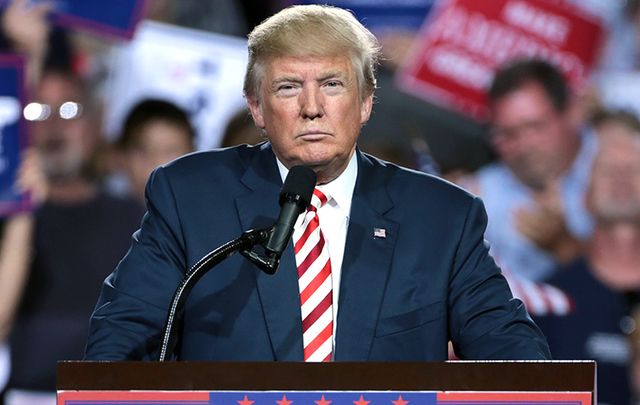Ireland’s massive tax advantage, which has resulted in 140,000 Irish jobs from American companies located there, could be at an end.
President Trump’s new policy, outlined by Treasury Secretary Steve Munchin, would reduce the US corporate tax rate from 35 per cent to 15 percent, just two and a half percent more than Ireland’s 12.5 percent, the lowest in Europe, which has driven American investment to Ireland.
According to leading Irish Times business columnist Cliff Taylor Ireland will soon feel the impact.
He wrote: “It will remove the current incentive for US companies to establish subsidiaries overseas which results in a reduction in their overall corporate tax bill.
“Tax experts believe that this could mean fewer US companies setting up foreign bases in lower tax locations in future – and thus a slowing in the flow of foreign direct investment (FDI) to countries such as Ireland.”
While existing companies such as Apple, Google and Facebook are hardly likely to leave Ireland, which has become their European headquarters, new companies may be harder to attract given the near equality in the tax base if the Trump initiative passes, which many experts believe it will.

Google's HQ in Dublin city.
Ireland's Industrial Development Agency, the IDA, has been incredibly successful in attracting major American multinationals such as Coca Cola, Intel, Facebook, Google, Apple and Pfizer (Viagra) and others on the back of the attractive tax deal.
Without that tax incentive, however, it would be a much tougher sell, especially with a president very intent on keeping American jobs in America.
It is far too early to speculate what the ultimate outcome will be if the new tax rate comes to pass, but Irish government sources must surely be worried. Without its multinational base secure the just recovering Irish economy could quickly be in difficulties again.

Apple HQ, in Cork.
However, Ireland continues to have excellent advantages: the only English-speaking country in the EU after Brexit, the educated workforce and the country is seen as an attractive, pro-business destination.
However, there is no denying the tax issue is a serious one. As Cliff Taylor stated, “If US companies can, in future, pay 15 percent tax at home, then the push for them to move abroad will lessen.”
In addition, Trump is set to offer a once-off tax holiday on funds kept abroad by US companies allowing them to be repatriated in America at a 10 percent rate. That too will impact Ireland where much of those funds are kept in Irish financial institutions as the European headquarters of the companies concerned.
A map illustrating the companies in Dublin's Silicon Docks (Via Silcon Roadmap)
The Irish government however is adopting a wait and see attitude and not jumping to any hasty conclusions.
A spokesman for the Department of Finance said the details of the full changes would determine their impact on Ireland.
"The exact implications of US tax reform for Ireland, and the rest of the world, will depend on the exact nature of any changes which are ultimately agreed," the spokesman said.
"Ireland’s membership of the EU is, and will remain, a key factor in attracting FDI from the US and elsewhere. Global business, from the US or elsewhere, will always want to have operations in the EU, and Ireland will remain very competitive and attractive as an EU location to invest in and do business from."
American Chamber of Commerce CEO Mark Redmond stated, "We can’t speculate on what might happen in the future, but Ireland has always competed very successfully on the world stage for US FDI.
"While it is very important not to be complacent, and we must constantly look for ways in which to improve our competitiveness, we expect that the Irish Government and the IDA will remain committed and successful in the pursuit of new business."
Read more: Eric Trump's trip to Ireland cost taxpayers thousands




Comments